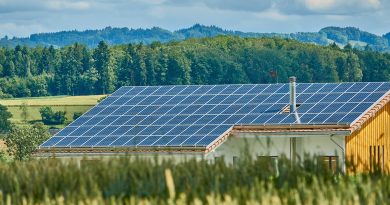Solar Rooftop Subsidy in Karnataka (2024)
With the rising importance of renewable energy sources, both the central and state governments in India have taken significant steps to promote solar energy. Karnataka, being one of the leading states in solar energy adoption, offers substantial subsidies to encourage the installation of solar rooftop systems. This blog will provide a detailed guide on the Solar Rooftop Subsidy in Karnataka, including what subsidies are, solar subsidy scheme in Karnataka, why they are given, the types of subsidies available, and the step-by-step process to apply for these subsidies.
Table of Contents
What is a Solar Rooftop Subsidy?
A subsidy is a financial aid or support extended by the government to help reduce the cost of a product or service, making it more affordable for the end-users. In the context of solar energy, subsidies are provided to lower the initial investment cost of installing solar panels, thereby promoting the adoption of clean energy solutions.
Why Are Solar Subsidies Given?
Subsidies for solar energy are given to:
- Encourage the adoption of renewable energy sources.
- Reduce dependence on fossil fuels.
- Lower carbon emissions and combat climate change.
- Provide financial relief to consumers by reducing electricity bills.
- Support the government’s goal of increasing the share of renewable energy in the total energy mix.
Types of Solar Systems Eligible for Subsidy
Subsidies are typically given for on-grid and hybrid solar systems.
- On-Grid Systems: These systems are connected to the grid and allow for the excess power generated to be fed back into the grid.
- Hybrid Systems: These systems combine both on-grid and off-grid features, with a battery backup to store excess power for later use.
Subsidies are generally not provided for off-grid systems because these systems are independent of the grid and primarily benefit remote areas where grid connectivity is not feasible.
Central Government Subsidy for Solar Rooftop Systems
Central Financial Assistance (CFA) for Rooftop Solar
The central government, through the Ministry of New and Renewable Energy (MNRE), provides financial assistance for installing rooftop solar systems.
| Category | Subsidy for Residential Sector | Subsidy for Institutional & Social Sector | Commercial & Industrial Sector |
| Up to 3 kW | 40% of benchmark cost | 20% of benchmark cost | No subsidy |
| Above 3 kW and up to 10 kW | 20% of benchmark cost | 20% of benchmark cost | No subsidy |
Karnataka aims to achieve a target of 1000 MW of grid-connected rooftop solar projects by 2027.
Karnataka RE Policy 2022-27
State Government Subsidy in Karnataka
The Karnataka government provides additional subsidies to further incentivize the adoption of solar energy.
| Category | Subsidy Percentage | Maximum Subsidy Amount | Notes |
| Residential Sector | 10% of benchmark cost (additional) | Up to INR 10,000 | On top of central subsidy |
| Agricultural Sector | 90% subsidy for solar pumps | – | For irrigation purposes |
Why is the Government Helping People with Subsidies?
The government provides subsidies to promote solar energy adoption for several reasons:
- Environmental Protection: Reducing greenhouse gas emissions and reliance on fossil fuels.
- Energy Security: Diversifying the energy mix and ensuring a stable power supply.
- Economic Growth: Stimulating the solar industry and creating jobs.
- Cost Reduction: Making renewable energy affordable for the public.
Note: DCR panels are mandatory to install if you want to get solar subsidy scheme.
Process of Getting Solar Subsidy
-
Initial Consultation: Contact a registered solar vendor or KREDL to assess the feasibility of installing a rooftop solar system subsidy in Karnataka.
-
Application Submission: Submit the application form along with necessary documents, including property ownership proof, identity proof, and a detailed project report from the vendor.
-
Approval and Installation: Upon approval, proceed with the installation of the solar panels as per the guidelines. The system must be installed by a certified installer.
-
Inspection and Subsidy Disbursement: After installation, KREDL will inspect the system to ensure it meets all standards. Once approved, the subsidy amount will be disbursed to the applicant.
Conclusion
Karnataka’s proactive approach towards promoting solar energy, coupled with substantial subsidies from both central and state governments, makes solar energy an attractive option for residents and businesses. By reducing the initial costs and providing ongoing financial benefits, these subsidies help in making solar power a viable and sustainable energy source for the future.
Here at SolarClue®, we offer a smart, practical, and “beautiful” solution. You will be answered for all the questions related to Solar.
We provide all kinds of brands that are the Best Solar panels in India.
If you are the one who is planning for the solar power system. Don’t hesitate to contact our team!
Looking forward to empowering you with solar energy, just like hundreds of our other clients!




